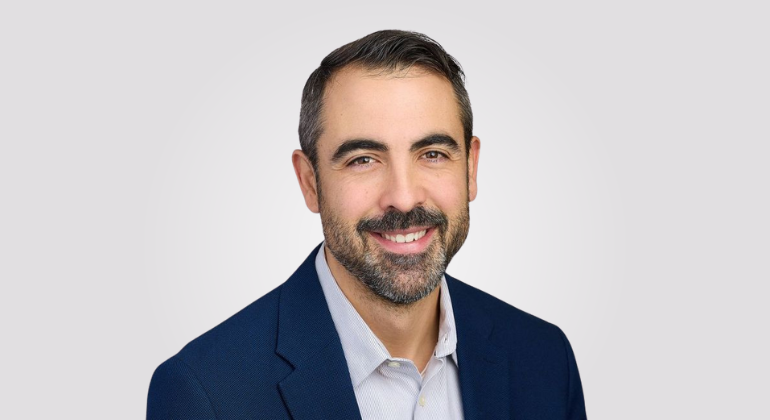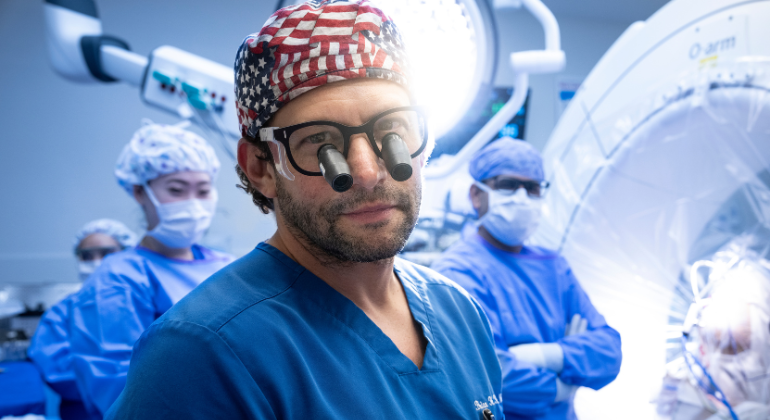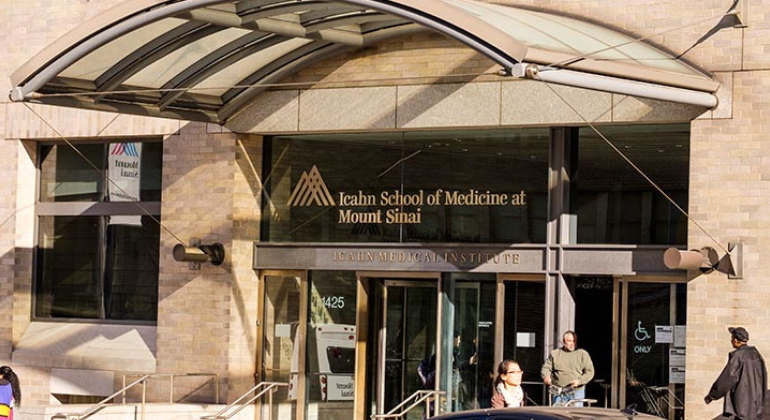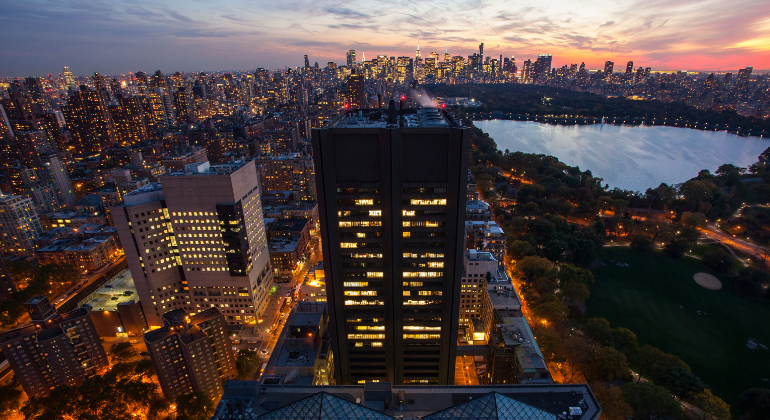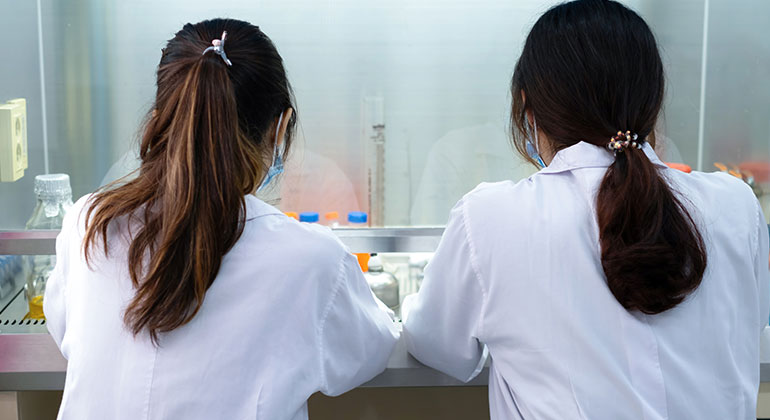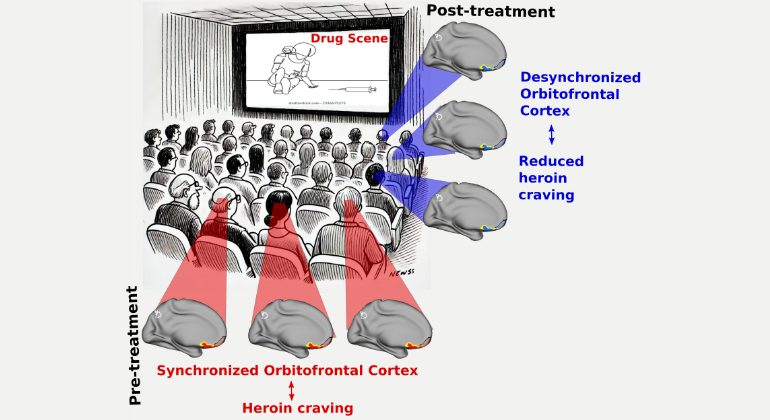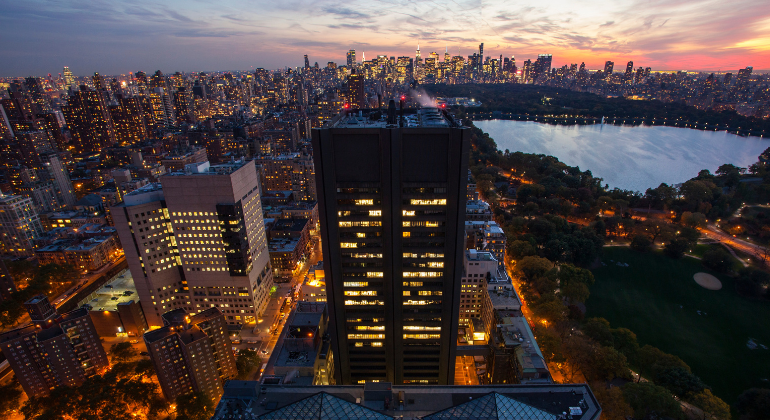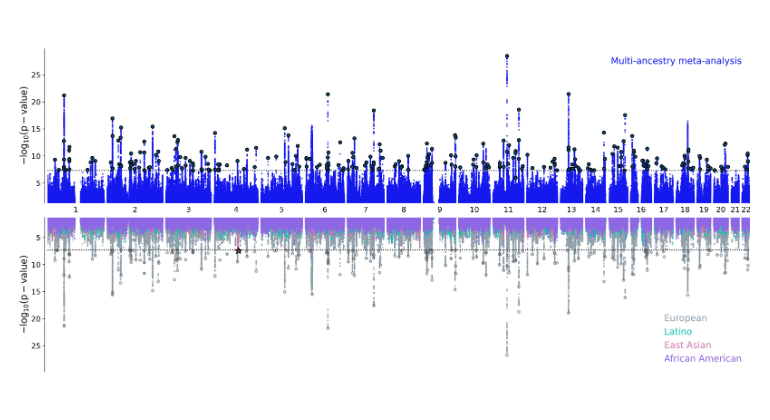Hormone Oxytocin, Delivered Nasally, Intensifies Positive and Negative Memories of Mom
Mount Sinai researchers find that oxytocin enhances men's positive or negative recollections of their mother's affection during childhood.
Researchers have found that the naturally-occurring hormone and neurotransmitter oxytocin intensifies men's memories of their mother's affections during childhood. The study was published today in Proceedings of the National Academy of Sciences.
Researchers at the Seaver Autism Center for Research and Treatment at Mount Sinai School of Medicine wanted to determine whether oxytocin, a hormone and neurotransmitter that is known to regulate attachment and social memory in animals, is also involved in human attachment memories. They conducted a randomized, double-blind, placebo-controlled, cross-over trial, giving 31 healthy adult men oxytocin or a placebo delivered nasally on two occasions. Prior to administering the drug/placebo, the researchers measured the men's attachment style. About 90 minutes after administering the oxytocin or the placebo the researchers assessed participants' recollection of their mother's care and closeness in childhood.
They found that men who were less anxious and more securely attached remembered their mothers as more caring and remembered being closer to their mothers in childhood when they received oxytocin, compared to when they received placebo. However, men who were more anxiously attached remembered their mothers as less caring and remembered being less close to their mothers in childhood when they received oxytocin, compared to when they received placebo. These results were not due to more general effects of oxytocin on mood or well-being.
"These results may seem surprising because researchers have assumed that the neuromodulator oxytocin has ubiquitous positive effects on social behavior and social perception in humans," said Jennifer Bartz, PhD, Assistant Professor, Psychiatry, Mount Sinai School of Medicine, and lead author of the study. "The fact that oxytocin did not make all participants remember their mother as more caring, but in fact intensified the positivity or negativity of the men's pre-existing memories, suggests that oxytocin plays a more specific role in these attachment representations. We believe that oxytocin may help people form memories about important social information in their environment and attach incentive value to those memories.
"However, we do not know whether oxytocin, when administered in drug form, increases a person's ability to accurately recall their mother's affections in childhood, or sets in motion a biased search for memories that support their more general beliefs about close relationships."
The ability to bond with our caregivers early in life has long been thought to be critical to survival because these bonds insure caregiver protection for the otherwise defenseless infant.
"We know very little about the biological mechanisms that support human attachment bonds, but understand that oxytocin regulates attachment in animals, and plays a specific role in forming social memories," said Dr. Bartz. "Our study suggests that oxytocin may similarly play a key role in human attachment by modulating these early memories of mom."
This research was funded by the Beatrice and Samuel A. Seaver Foundation. Additional study sites include Columbia University and McGill University.
About The Mount Sinai Medical Center
The Mount Sinai Medical Center encompasses both The Mount Sinai Hospital and Mount Sinai School of Medicine. Established in 1968, Mount Sinai School of Medicine is one of few medical schools embedded in a hospital in the United States. It has more than 3,400 faculty in 32 departments and 15 institutes, and ranks among the top 20 medical schools both in National Institute of Health funding and by U.S. News & World Report. The school received the 2009 Spencer Foreman Award for Outstanding Community Service from the Association of American Medical Colleges.
The Mount Sinai Hospital, founded in 1852, is a 1,171-bed tertiary- and quaternary-care teaching facility and one of the nation's oldest, largest and most-respected voluntary hospitals. U.S. News & World Report consistently ranks The Mount Sinai Hospital among the nation's best hospitals based on reputation, patient safety, and other patient-care factors. Nearly 60,000 people were treated at Mount Sinai as inpatients last year, and approximately 530,000 outpatient visits took place.
For more information, visit www.mountsinai.org. Follow us on Twitter @mountsinainyc.
About the Mount Sinai Health System
Mount Sinai Health System is one of the largest academic medical systems in the New York metro area, with 48,000 employees working across seven hospitals, more than 400 outpatient practices, more than 600 research and clinical labs, a school of nursing, and a leading school of medicine and graduate education. Mount Sinai advances health for all people, everywhere, by taking on the most complex health care challenges of our time—discovering and applying new scientific learning and knowledge; developing safer, more effective treatments; educating the next generation of medical leaders and innovators; and supporting local communities by delivering high-quality care to all who need it.
Through the integration of its hospitals, labs, and schools, Mount Sinai offers comprehensive health care solutions from birth through geriatrics, leveraging innovative approaches such as artificial intelligence and informatics while keeping patients’ medical and emotional needs at the center of all treatment. The Health System includes approximately 9,000 primary and specialty care physicians and 10 free-standing joint-venture centers throughout the five boroughs of New York City, Westchester, Long Island, and Florida. Hospitals within the System are consistently ranked by Newsweek’s® “The World’s Best Smart Hospitals, Best in State Hospitals, World Best Hospitals and Best Specialty Hospitals” and by U.S. News & World Report's® “Best Hospitals” and “Best Children’s Hospitals.” The Mount Sinai Hospital is on the U.S. News & World Report® “Best Hospitals” Honor Roll for 2025-2026.
For more information, visit https://www.mountsinai.org or find Mount Sinai on Facebook, Instagram, LinkedIn, X, and YouTube.
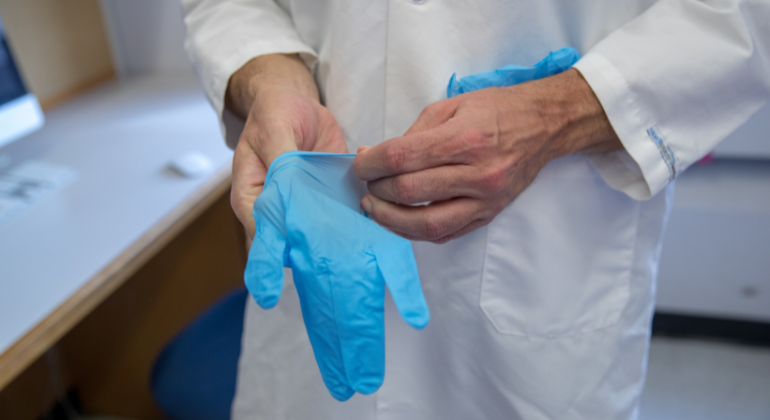
The New England Journal of Medicine Shines Spotlight on Forensic Pathology
Jul 03, 2025 View All Press Releases
